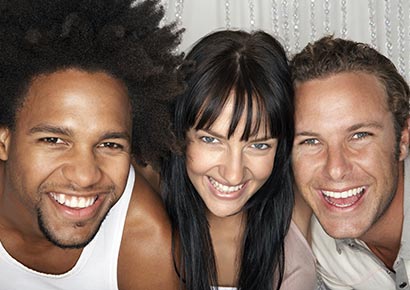A brave new world as 20% of Millennials identify as LGBTQ
 As the world becomes increasingly open, more young people are feeling free to express and explore their diverse sexual and gender identities, reveals a new report.
As the world becomes increasingly open, more young people are feeling free to express and explore their diverse sexual and gender identities, reveals a new report.
The Accelerating Acceptance report has found that American Millennials (people ages 18-34) are far more likely to openly identify as LGBT (lesbian, gay, bisexual and transgender) than the generations before them.
In fact, Millennials are more than twice as likely (20% vs. 7%) to identify as LGBTQ than the Boomer generation (people ages 52-71) and two-thirds (20% vs. 12%) more likely than Generation X (people ages 35-51).
These statistics are based on an online survey by GLAAD of 2,037 US adults, ages 18 and older. It also shows growing levels of young people who are more likely to identify outside of traditional binaries such as “gay/straight” and “man/woman.”
“As the [Trump] administration begins to fulfil its pledges to move the country backwards, many are concerned about progress made in recent years for the LGBTQ community,” said Sarah Kate Ellis, GLAAD President & CEO.
“However, this report shows a remarkable new era of understanding and acceptance among young people – an inspiring indication of the future. Though laws can be unwritten, hearts and minds in America have been changed for the better – and that is a reality less easily unravelled.”
The survey further found that 12% of Millennials identify as transgender or gender non-conforming, meaning they do not identify with the sex they were assigned at birth or their gender expression is different from conventional expectations of masculinity and femininity – doubling the number of transgender and gender non-conforming people reported by Generation X (6%).
While older generations (people ages 35+) of LGBTQ people largely use the words “gay” and “lesbian” and/or “man” and “woman” to describe their sexual orientation and gender identity respectively, Millennials appear more likely to identify in terminology that falls outside those previously traditional binaries.
Interestingly, non-LGBTQ Millennials are also significantly less likely to know someone who identifies as “gay” or “lesbian” than generations before them, indicating that their LGBTQ peers largely describe themselves in words outside more traditional binaries.
The survey shows that while acceptance of LGBTQ people remains high, progress has slowed since the landmark US Supreme Court ruling that legalised same sex marriage in 2015, with rates of discomfort declining on average by 3% from 2014-2015 but going unchanged from 2015-2016.
Just a small correction in terminology. Transsexuals are people who have an opposite sex to their gender and generally desires to have physical changes made (HRT and/or SRS). Transgender on the other hand is a spectrum of non binary or non conforming gender identities. For examples Agender, Bigender, Transvestite and Transsexual are all part of the Transgender Spectrum. This means that all Transssxuals are Transgender, but not all Transgenders are transsexuals. It is also why Transgender (the spectrum) is represented in LBGTQ as it includes all non gender conforming people and not just transsexuals.